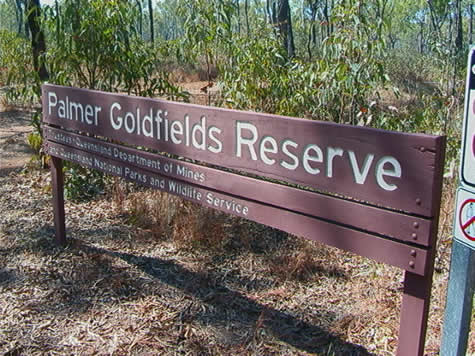The year is 1873. You are about to set off for the Palmer River gold fields, the distance from Cooktown to the start of your adventure is a week’s walk. What supplies would you take to last you several months away from any supply centres? What would be the most important item you’d gladly pack?
Murdo Cameron was a seasoned veteran of the early gold rushes. He had pushed upriver about thirty five miles and, as it was a Sunday evening, he found a promising spot, unpacked his horses and prepared to make camp for the evening. He wandered to the river to fill his billy for evening tea when something caught his eye. Glittering among the river rocks was gold. Cameron panned four ounces in his first attempt! As there wasn’t another man for miles, he lit his fire, made a billy of tea and ate the last of his damper. Cameron was about to start the rush…
For all of the hardships of the early miners, short rations of food played the biggest role. Of the necessary ingredients to have on hand, flour was the most important and damper was the staff of life. In Cooktown, a three pound bag cost three pounds. On the Palmer River, it would start at around twenty pounds per bag.

Purchasing flour in the gold fields was by no easy means. William J. Webb wrote, “ Mrs. Neil stood on the dray cart and conducted the sale of flour at half a crown a pound. If the lady didn’t like the looks of you, or found fault with your manners, or thought she could read in your eye any question as to whether the battered pannikin she measured with really held a pound of flour, you went without and that was all about it.”
As the Wet season approached, miners stayed in the gold fields until the last possible moment before heading back to the coast. Unlucky was he that didn’t have a ration of flour to start the journey. Webb reported short rations on the track, which reduced those in his party to eating ‘bango’, boiled flour and sugar. As conditions became more difficult, many would gladly trade their hard earned gold dust for a pound of flour to see them through.
April